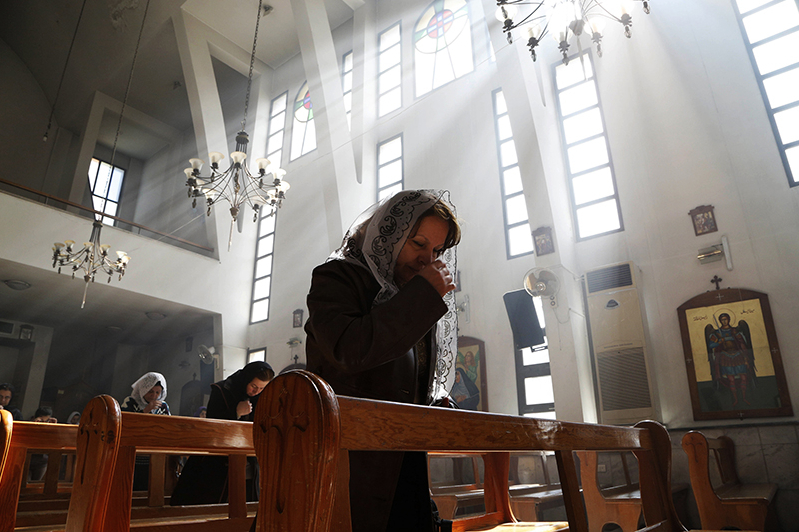
A Syrian Christian from the war-torn region of Aleppo has shared how despite the mass exodus of believers from the region, churches are far from empty, as church pews are filled with former Muslims eager for the Good News of Jesus Christ.
The BBC estimates that as many as 30,000 Christians are among those who have fled Aleppo, with only a quarter of the Christian population remaining since the beginning of Syria's civil war in 2011.
However, Rami, a Syrian Christian now living in the UK, shared how the church continues to thrive in the Middle East despite IS' best attempts to snuff it out.
He told World Watch Monitor: "God has been very faithful. Newcomers fill the gap. Some are Christians from other churches, others are new believers with a Muslim background. The way the church functions has changed drastically of course. It's not secure to travel at night. That's why all evening services and activities have been cancelled or changed to earlier during the day."
In an effort to bring hope to his native land, Rami co-ordinates "Hope for the Middle East", a seven-year advocacy campaign from charity Open Doors which works with the persecuted Church. The campaign seeks to "maintain a presence in the Middle East for the Church and to show that it has an active role to play in the future of Syria and the region as a whole."
"We see something in the Middle East that is probably unprecedented: the enormous exodus of Christians," he told WWM. "At the same time the global Church recognizes how important it is that the Christians' presence is preserved in the Middle East. We are God's ambassadors. If the Christians leave the Middle East it's like God's presence is leaving the Middle East. The presence of the Church is vitally important. People are desperate and see very little hope. The fact that there still is a Church gives them encouragement and hope."
Rami added that maintaining the presence of Christians is not only about them; it is for the good of society as a whole, as Christians have historically contributed to societies in literacy, in health, in translating and contributing to the Arabic language.
"Christians were among the first to introduce charitable works and NGOs," he explained "We see them involved in politics, and in the development of the Iraqi and Syrian states. Christians are among the most well-known businesspeople. And in the future Christians, alongside other numerical minorities, are vitally important for the stability of these countries. Policy makers and researchers agree that we need to maintain diversity in order to counter extremism and radicalization. We need diversity to ensure sustainable peace and lasting stability in the Middle East."
In a separate report, Open Doors USA noted that before the war, it was rare that a Muslim would become a follower of Jesus Christ. However, today, Muslims are turning to Christ in "unprecedented" numbers.
"They come to church because they feel comforted," a local pastor said. "I heard people testify: 'Thank God for the war in Syria; it brought us to Jesus.'"
He continued: "God is at work in a special way. We see a lot of new faces being baptized. In the coming few years, we will be the minority, and believers from other backgrounds will be the majority."
The pastor explained that new believers are unafraid to risk everything for their faith: "They have to leave their context and their families. They know that whoever leaves Islam should be killed. These wonderful new believers will become preachers all over the Middle East. God is waking up a sleeping church; a new nation of new believers is being born."
Rami, along with Open Doors, is currently working with indigenous church leaders in the Middle East, engaging with governments and decision makers across the globe, alongside the goal of collecting a million signatures in support of the campaign.
"We call it the One Million Voices petition and we want to present it to the new UN Secretary General on 20 June 2017, World Refugee Day," Rami said. "The petition aims to underline the three points about discrimination, dignity and recognition...Our voice will only be heard if it's louder - that's why we need at least one million signatures. The second reason is that it encourages Christians in the Middle East. They also participate in the One Million Voices. Let's follow their example, come alongside them and show them they are not alone."






